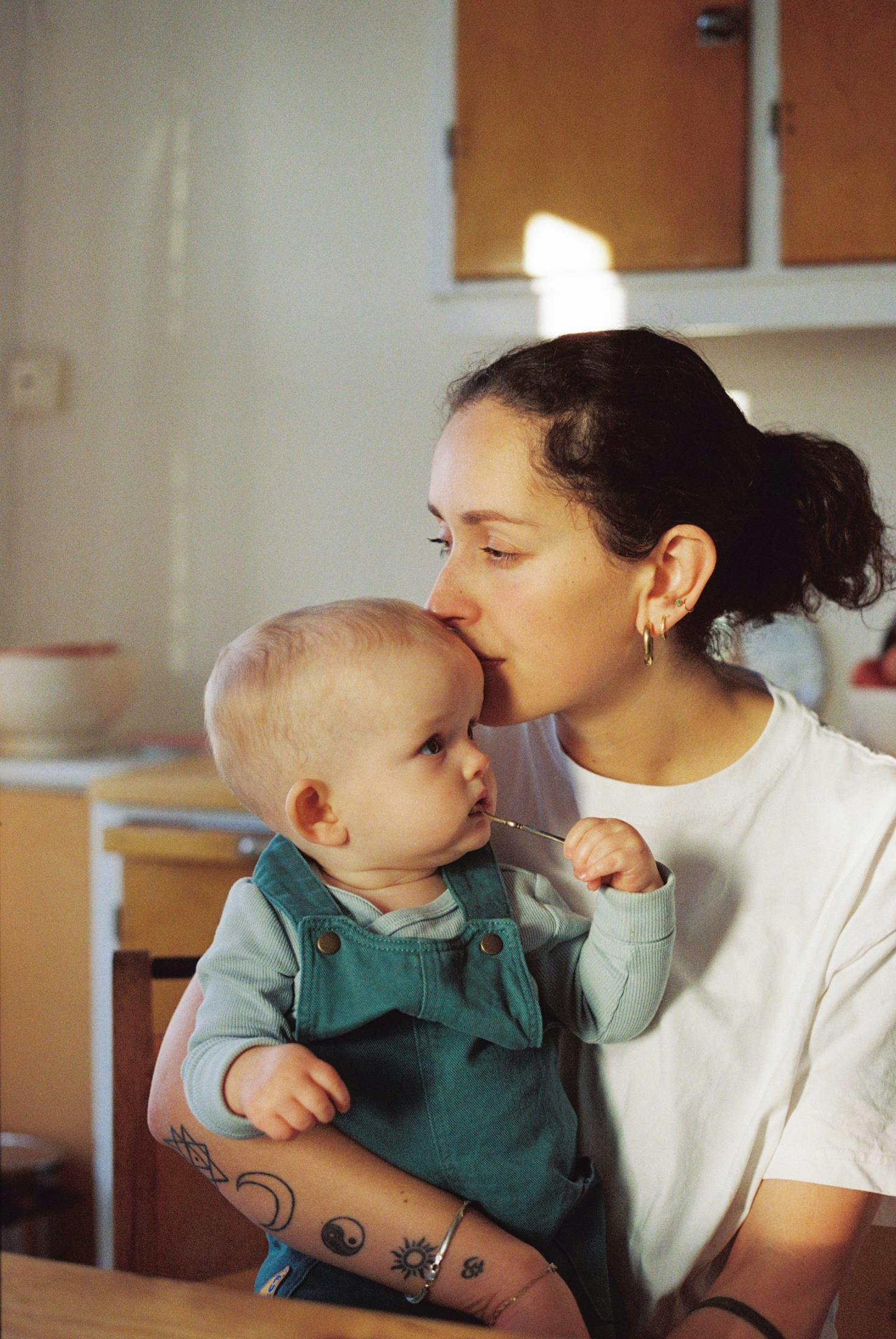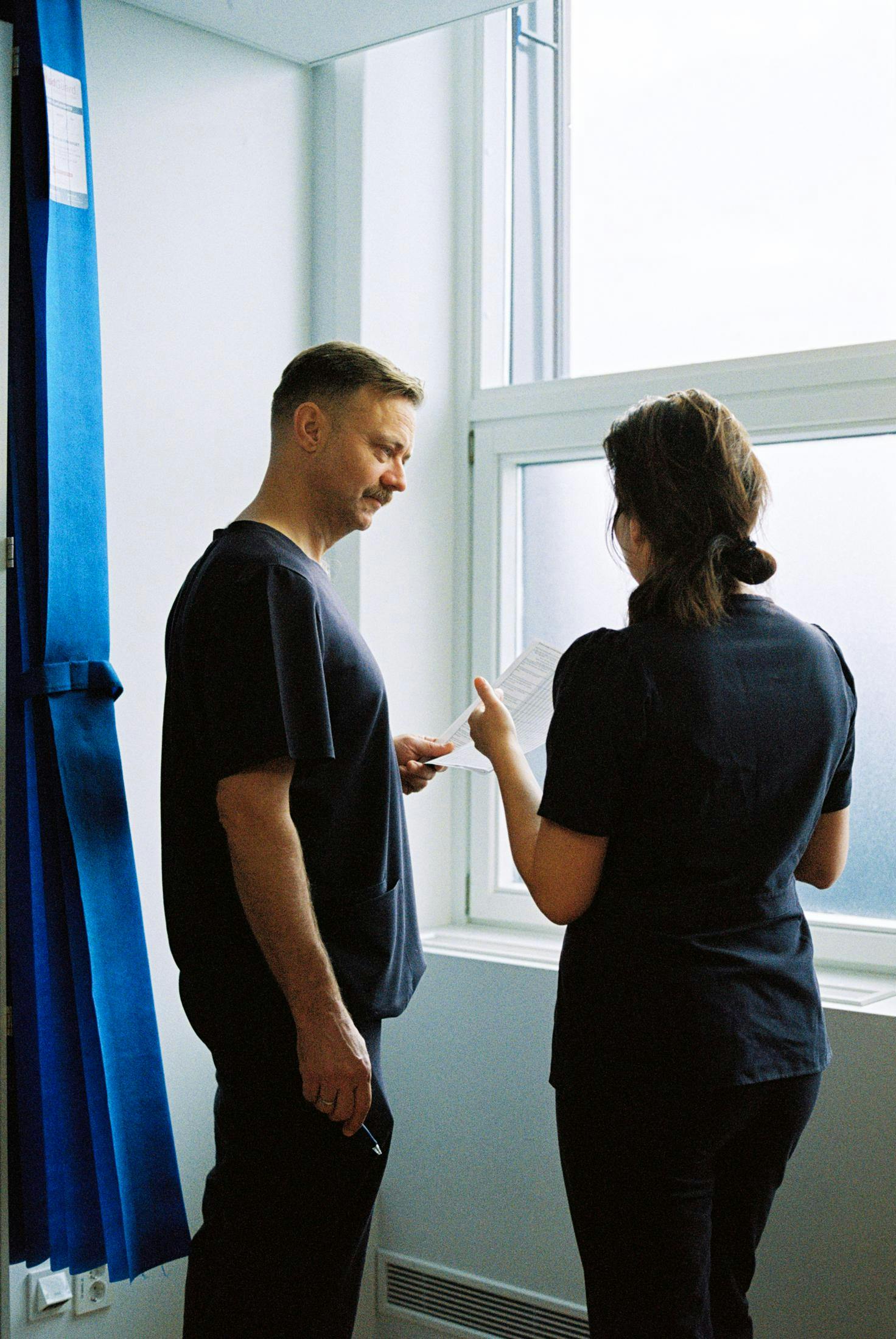
Short waiting time
In the best of hands
Prolapse, Urinary Incontinence, Childbirth Injuries
High expertise
Today, we talk about childbirth tears that occur during the actual delivery and are addressed and healed. When we refer to childbirth injuries, we mean a lasting damage that causes problems over time, after you have given birth to your child.
We conduct investigations into symptoms related to the pelvic floor, such as prolapse and urinary incontinence. We also perform pelvic floor ultrasound for those with childbirth injuries. If you require surgical treatment, you can undergo surgery in our operating department.
There are treatments that can alleviate the problems
Unfortunately, many feel that childbirth injuries are difficult to talk about or that others may not understand their concerns. However, it is important to emphasize that there are treatments that can alleviate the problems. Seeking help and advice from specialists is crucial to accurately assess the symptoms and subsequently recommend the right treatment.
What is a childbirth injury?
During a vaginal delivery, approximately 8 out of 10 women experience some form of childbirth tear, but most heal on their own and do not cause any lasting issues. If the childbirth tear heals with defects, it can lead to a childbirth injury that may cause problems.
The most common tears that can occur during vaginal delivery
Tears are common and are usually classified into four different degrees.
Grade 1 involves a tear in the skin and mucous membrane.
Grade 2 is a tear in the mucous membrane and the underlying muscle attachment in the perineum.
Grade 3 and 4 occur in approximately 3.5 percent of vaginal deliveries and describe different degrees of damage to the anal sphincter and surrounding tissues.
Injuries to the levator muscles
Injuries to the levator muscles, side muscles in the pelvic floor, are also relatively common.
Levator injuries occur in approximately 10-15% of vaginal deliveries in first-time mothers. The levator muscle is stretched to three times its own length during a vaginal delivery, and sometimes there is a tearing of the muscle's attachment from the pubic bone, known as an avulsion injury.
A levator injury can occur on one side or both, and the injury is classified into microtraumas, meaning stretches/small tears, or macrotraumas, which involve a complete tear of the muscle. Those with small tears often heal within a year, while others may experience lasting damage, with or without symptoms. A levator injury is often challenging to assess immediately after childbirth because it is not visible to the naked eye.
Risk factors for a levator injury are the same as for significant tearing, including the use of vacuum extraction, a large baby, and a prolonged second stage of labor. However, a levator injury can also occur when the delivery is too fast. With a levator injury, one may experience pain in the pelvic floor, especially during pelvic floor exercises.
Prolapse and symptoms
Prolapse involves a weakening of the vaginal support tissue, resulting in something bulging out of the vaginal opening.
It can be the uterus and/or vaginal walls. Symptoms of prolapse may also include difficulty emptying the bladder, urinary urgency, difficulty emptying the bowels, constipation, or discomfort in the pelvic area. Often, the sensation is less noticeable upon waking and increases later in the day when the body has been subjected to gravity and various forms of stress.
A constant bulging/heaviness sensation usually gradually decreases after a few months postpartum. Sometimes, a tense pelvic floor can cause various symptoms such as a heavy feeling and pain, leading one to interpret it as a prolapse sensation. However, unlike prolapse, which is influenced by exertion and rest, a tense pelvic floor tends to feel more constant and can be aggravated by stress/anxiety/fear, as the pelvic floor muscles quickly respond to these emotions.
Surgery for childbirth injury
Some injuries that occur during childbirth require more than pelvic floor exercises for the pelvic floor to regain its previous function. In such cases, surgery may be considered. The procedure is typically performed in day surgery, under local anesthesia or general anesthesia. If you require surgical treatment, you can undergo surgery in our operating department in Stockholm.
Living with issues after tearing
It is common to feel unwell if you have issues that persist long after childbirth. Often, it can be sensitive to talk about these problems.
It can also be challenging to get understanding for your issues. Many hear from various sources that this is how giving birth is, that the pelvic area changes. You may hear that it's natural to leak urine or that everyone who has given birth farts when they cough. But it doesn't have to be this way.
Specialist clinics
CMedical is a Nordic health concept, with focus on gynecology and fertility.
At CMedical, you get experience, cutting-edge expertise and modern technology all in one place – a safe and caring experience, whether you are a new patient or coming from another clinic. Former Livio Oslo patients now have access to the best of both clinics, with shorter waiting times and comprehensive follow-up before, during and after treatment.
We are the clinics that take women's health seriously, a place that emphasizes both professional precision and care. With us, you will be met by teams who have a deep understanding of the challenges women may face, from gynecological issues to fertility treatments.
Our philosophy is that you should receive all the help you need in one place. Here, you will meet experienced and well-known surgeons, gynecologists, and fertility specialists with the highest expertise, working together with interdisciplinary teams.
At our clinics across Sweden and Norway, you will be greeted with warmth and expertise. So that we can tailor a solution that fits you.
Finance
We are a private healthcare provider. This means you pay for the services yourself or have the evaluation or treatment covered by health insurance.
Private care
Some of our clinics accept privately paying patients from Sweden, Norway and abroad. In collaboration with our partners, we have developed favorable financing options for those who wish to pay privately. Contact your clinic for more information.
Frequently Asked Questions
Ensuring a seamless patient experience is our priority. If you encounter any queries or uncertainties, our contact number is conveniently located at the bottom of the page. Your convenience and peace of mind are of utmost importance to us!
Referral
No referral required. We are a private health clinic and, therefore, do not have a reimbursement agreement with the public sector.
Waiting time
We offer no to very short waiting times, typically ensuring assistance within a week. The timeframe varies depending on your specific needs; for example, simple consultations can be scheduled more quickly compared to surgeries. Feel free to contact us, and we'll find a time that suits you!
About the company
CMedical was established in 2013 and is a Nordic private healthcare provider with clinics in Norway and Sweden. We conduct approximately 50,000 consultations per year, ensuring to leverage our expertise to understand the overall health picture of our patients.
Medical examination
We recommend everyone to start with a diagnosis or consultation. A typical diagnosis with us lasts approximately 30 minutes.
